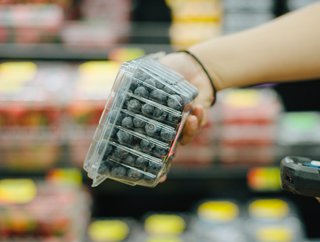Carrefour to use blockchain technology to trace food through supply chain

Europe’s largest retailer, Carrefour, has announced that it will use blockchain technology to track and trace produce from farms to stores.
Developed by the US-based firm, IBM, the technology will track items such as free-range chickens, eggs, cheese, milk, oranges, tomatoes, salmon and ground beef steak.
The blockchain-based cloud network, known as IBM Food Trust, aims to enable greater traceability, transparency and efficiency in the food industry.
The French retailer says that the launch of the technology is an “important milestone” in its 2022 transformation strategy.
SEE ALSO:
- Kraft Heinz launches $100mn venture capital fund to invest in food technology
- Grubhub acquires food delivery platform Tapingo for $150mn
- JD.com to open 1,000 7Fresh supermarkets in China within five years
- Carrefour names digital chief as head of French hypermarkets business
The technology will allow producers, processors, distributors and other players in the food supply chain to provide traceability information about produce.
This information could include dates, places, farm buildings, distribution channels and potential treatments which customers can access using QR codes on product labels.
Using this blockchain platform, food can be quickly traced back to its origins in minutes rather than days or weeks.
“Become the leader of the food transition for everyone is the aim that Alexandre Bompard has set for the Carrefour group,” said Laurent Vallée, Carrefour's general secretary and head of quality and food safety.
“Making use of blockchain technology is an exemplary step in meeting this aim.
“This is a first in Europe and will provide consumers with guaranteed complete transparency as far as the traceability of our products is concerned.”
With more than 12,000 stores in 33 countries, Carrefour hopes to use the solution to enhance consumer confidence in Carrefour’s brands.
As part of its Act for Food programme, the retailer plans to expand the technology to all its brands worldwide by 2022.
"The currency of trust today is transparency and achieving it in the area of food safety happens when responsibility is shared," added Bridget van Kralingen, senior vice president, IBM Global Industries, Clients, Platforms and Blockchain.
"That collaborative approach is how the members of IBM Food Trust have shown blockchain can strengthen transparency and drive meaningful enhancements to food traceability.
"Ultimately that provides business benefits for participants and a better and safer product for consumers.






